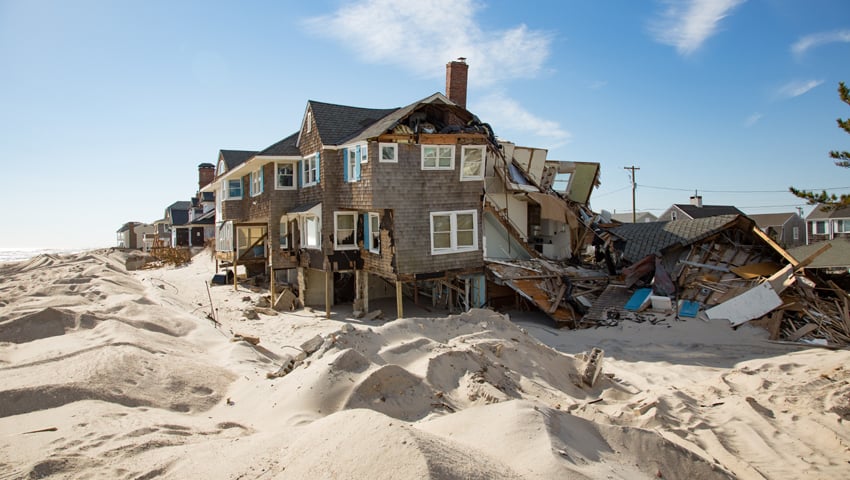SINCE the 1970s, extreme weather damage such as storms, floods, heatwaves and droughts have destroyed swathes of property and taken 61,000 lives. Accelerating global climate change has made these events more frequent and intense.
A study by New Zealand researchers, published in Nature Communications, has calculated the global figure for increased costs directly attributable to climate change.
They found that in aggregate, “the climate change-attributed costs of extreme weather over 2000–2019 are estimated to be US$2.86 trillion, or an average of $143 billion per year.” In 2022 the costs were $280bn.
The paper says, “Extreme weather events lead to significant adverse societal costs. Extreme Event Attribution (EEA), a methodology that examines how anthropogenic greenhouse gas emissions had changed the occurrence of specific extreme weather events, allows us to quantify the climate change-induced component of these costs.
The majority of the costs (63%) is due to human loss of life. The World Meteorological Organization reports that there has been a sevenfold increase in reported disaster losses from extreme weather since the 1970s.
The researchers assessed extreme weather events in the International Disaster Database (EM-DAT). They found that “anthropogenic climate change is responsible for a net $260.8bn of economic damages across the 185 matched events. This is equivalent to 53% of the total damages recorded. More than 64% of the climate change-attributed damages are connected to storms, which is expected given the high damages from events such as Hurricane Harvey. Furthermore, 16% of the attributed damages resulted from heatwaves, while floods and droughts are each responsible for 10%, and wildfires account for 2% of the net attributed damages. Lastly, cold events, calculated as a fall in climate change-attributed damages, are responsible for only −2% of net attributed damages.”
The analysis used a statistical value of a life lost of $7m, an average of the figures used by the US and UK governments.
“A lot of people are very uncomfortable with the idea that we put a price tag on a life,” Ilan Noy from Victoria University of Wellington, who researched the study with Rebecca Newman from the Reserve Bank of New Zealand, told The Guardian. “But this is very standard economic practice and comes about because, ultimately, we need make decisions about [the value of] investments in various things,”
Ideally, he said, a quick attribution study on an extreme weather event would estimate the climate-related damage and lead to a rapid delivery of funds: “It would be a kind of insurance scheme for countries.” The methodology might also be useful for determining damages in climate lawsuits, he said.
Dr Stéphane Hallegatte, at the World Bank and not part of the study team, told the Guardian, “The key message is that climate change is visibly increasing global economic losses from disasters. This has been a topic of controversy, with some claiming that climate change effects are negligible compared with other factors like economic growth and urbanisation.
“This study looks at the attribution for the physical event – it’s much simpler, robust, and it provides a convincing case. It is an emerging field and uncertainties are really large. One lesson of the study is that global research centres – mostly located in rich countries – need to work more on what is happening in poorer countries.”
Read the research paper: The global costs of extreme weather that are attributable to climate change
